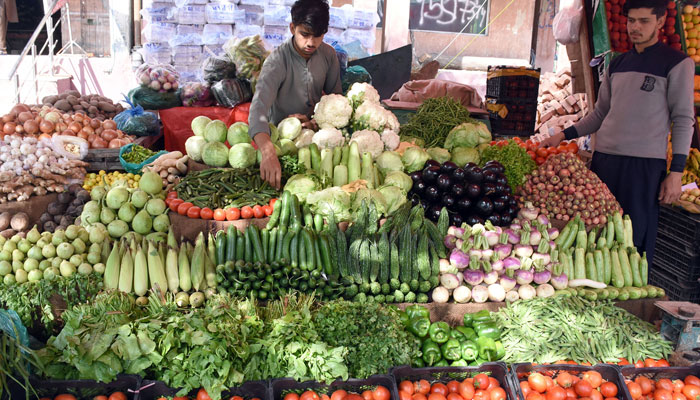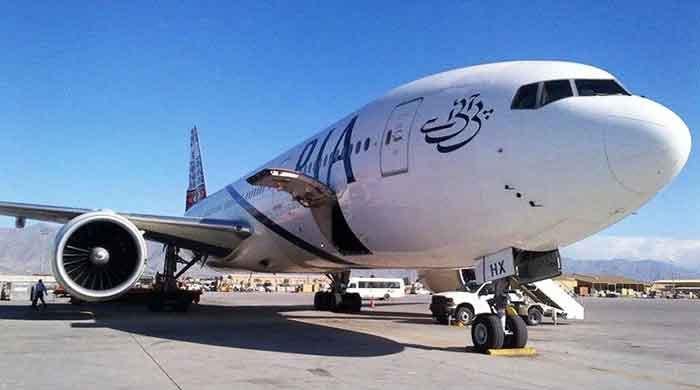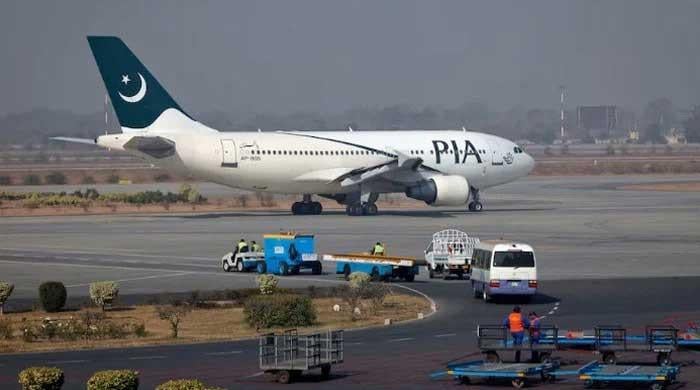Weekly inflation surges for fifth consecutive week on soaring food prices
Prices of 23 essential items, salt, chicken, onions, and other items increased during the outgoing week
November 18, 2022

- Prices of 23 items, including salt, chicken, etc increased during the outgoing week.
- Rates for 15 essential goods remained unchanged.
- Economist says weekly increase needs to be tamed with supply-side measures.
KARACHI: The weekly inflation, based on the sensitive price index (SPI) continued to rise for the fifth consecutive session due to sky-high food prices.
The Pakistan Bureau of Statistics (PBS) on Friday reported that the SPI-based inflation rate rose 0.62% during the week ended November 17 compared to last week; meanwhile, it rose 28.67% compared to the same period of last year.
Data released by PBS showed that the average prices of 23 essential items, salt, chicken, onions, and other items increased during the outgoing week.
Prices of 13 items, including tomatoes, pulse masoor, vegetable ghee, and cooking oil have declined. Meanwhile, the rates for 15 essential goods remained unchanged.
The combined income group index went up from 216.48 points during the week that ended on November 10 to 217.82 points in the week under review.
The SPI for the lowest income group increased by 0.96% compared to the previous week. The index for the group stood at 227.19 points against 225.03 points in the previous week.
Speaking to Geo.tv, former advisor to Finance Ministry Dr Khaqan Najeeb said inflation is a key macro-economic indicator of the state of the economy.
“High inflation in double-digits indicates a combination of higher demand pressures, supply shortfalls and prices of imported inputs,” he said.
The former adviser said inflation is a global concern; he, however, added it has had a more marked effect in Pakistan, as “we are more dependent on imports now at 25% of GDP including petroleum products, edible oil, machinery, food, vehicles, mobiles and industrial raw materials.
“Food-price inflation has made life difficult for Pakistan’s low-income citizens who spend more than half of their incomes on food,” Dr Najeeb said, adding that low productivity of agriculture and the administered prices of energy are two key domestic drivers of price in the economy.
SPI has increased for five weeks in a row, “this weekly increase needs to be tamed with supply-side measures, energy efficiency and conservation measures,” he suggested.
The economist maintained that in the medium term, building the productive capacity of the economy is the real way to manage price pressures.
On weekly basis prices of following essential items rose:
Food items:
- Salt powdered —7.61%
- Tea — 5.90%
- Chicken — 4.89%
- Onions — 4.61%
- Eggs — 3.66%
- Potatoes — 2.48%
Non-food items:
- Firewood — 6.23%
- Energy saver — 1.32%
On weekly basis prices of following essential items declined:
Food items:
- Tomatoes — -6.06%
- Pulse Masoor — -1.56%
- Vegetable Ghee 1kg — -1.03%
- Cooking Oil 5 litre tin — -0.38%
- Wheat flour — -0.22%
Non-food items:
- LPG — -0.22%
SPI is computed on weekly basis to assess the price movements of essential commodities at a shorter interval of time to review the price situation in the country. It comprises 51 essential items and the prices are collected from 50 markets in 17 cities of the country.









